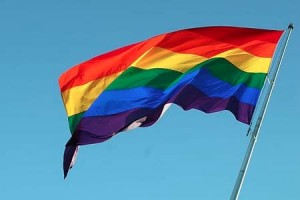 Late Friday night, the last day of the final meeting in a series of UN conferences, African officials rejected attempts by UN and sexual rights activists to promote homosexuality and abortion.
Late Friday night, the last day of the final meeting in a series of UN conferences, African officials rejected attempts by UN and sexual rights activists to promote homosexuality and abortion.
The UN conference to draft a development agenda for Africa concluded in a fierce clash between regional values and the “progressive” norms pushed by UN agencies on controversial issues such as abortion and sexual orientation. The African leaders appeared prepared for the meeting in Ethiopia to spurn vague phrases lobbied for by sexual rights activists.
In a press release, the United Nations Economic Commission for Africa (UNECA) noted that 17 countries expressed reservations on three of the commitments in the final document, downplaying it as “normal in such kind of negotiations.”
The controversy centered on the call for human rights for all “without distinction of any kind,” a phrasing that UNECA admitted was open to an “elastic interpretation to meanings that might be unacceptable in Africa for various reasons.”
The Zambia Daily Mail was more explicit, reporting that “the majority delegates shot down a clause that would seek to promote gay and lesbian rights,” adding that this was “a clear reflection of the position of most African countries on homosexuality.”
For some, merely lodging a reservation was not enough. The delegate from Chad said, “It must be put on record that Chad is not party to this declaration,” accusing the document of being “a subtle way of introducing something which may catch some countries unawares.”
Delegates from other countries echoed this concern, anticipating pressure to change national laws in accordance with “the spirit of this declaration.”
Some delegates also expressed reservations to language related to legalizing abortion. Sudan and Egypt stressed that any reference to abortion must be “in accordance with national laws and policies.”
African diplomats are not alone. Last month, Nigeria’s Catholic bishops issued a statement denouncing “the continuous attempts by foreign agencies to introduce unhealthy values in our society in their campaigns for abortion, condom distribution and promotion of homosexual unions.”
Officials from 52 African countries worked on the document, called the Addis Ababa Declaration. It does not carry the weight of a treaty, but will feed into the global population and development agenda beyond the 20-year anniversary in 2014 of the Cairo Programme of Action.
As the Friday Fax reported last week, Africa’s unique combination of fertility and poverty makes it a prime “testing ground” for social experimentation and increases its vulnerability to pressure from donor governments, international agencies, and civil society organizations.
The International Women’s Health Coalition sent staff to Addis Ababa to conduct a multi-day advocacy workshop to equip feminist groups to campaign for sexual and reproductive rights, “including access to safe and legal abortion.” After the conference ended, advocacy director Shannon Kowalski expressed her disappointment on Twitter: “Still feeling traumatized from last week’s frenzy of hate.”
As of press time, the full declaration and countries’ reservations has not been released. One diplomat speculated “some people are unhappy that the references to certain tendencies did not appear in the declaration and hence are not so eager to publicize it.”



